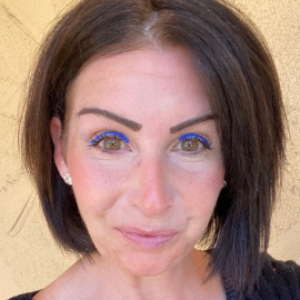Title : Applying the biopsychosocial model when treating individuals with substance use disorder and addiction
Abstract:
The purpose of this presentation is to educate, inform, and discuss a multidisciplinary approach to treat individuals abuse and addiction can impact individuals within several domains. Within the biopsychosocial model, there is a significant focus for human service professionals, counselor educators, and primary care physicians to observe, analyze, and assess the biological, psychological, and social factors relevant to an individual when treating addiction. Despite the fact that addiction is multi-layered with several factors contributing to the addictive behavior, heritability estimates have indicated that approximately 40–60 percent of the population variability in developing an addiction to nicotine, alcohol, or illicit drugs is attributable to genetic factors (Koob & Volkow, 2016; Agrawal et al., 2012). Addiction, similar to several behavioral health outcomes, is the result of environmental and genetic variables that affect an individual over the lifespan (Buchanan & Lovallo, 2019). From a genetic and behavioral understanding of addiction, the perspective would be consistent with cultural ideologies that highlight an individual’s cause of an illness, in addition to therapies and prevention strategies focused on an individual’s physical makeup and choices (Link & Phelan, 1995). The two terms that most behavioral genetics researchers focus on when studying the influence of genetics and behaviors are the gene environment correlation and the gene environment interaction. The gene-environment correlations depict the situation in which one’s genetics influence the type of environment one may be exposed to (Buchanan & Lovallo, 2019).
The biopsychosocial model is a viable option to treat individuals with SUD developed by George Engel (1977) and contradictive to the traditional medical model. The evidence of the biopsychosocial model indicates that biological, genetic, personality, psychological, cognitive, social, cultural, and environmental factors integrate to the etiology of substance use disorder, and several factors must be addressed in prevention and treatment programs (Skewes & Gonzalez, 2013). Research suggests that to decrease illness, or in this case, substance use disorder, or to notice and be able to cope with it earlier to prevent the progressive of a condition, and improve to provide community and social care where possible to avoid or shorten hospital admissions. Implementing this last strategy involves practical psychological and social factors, such as availability of social supports (Bolton et al., 2018). The first two strategies, primary and secondary prevention, interplay with the following psychosocial factors: lifestyle, social capital and health literacy (Bolten et al., 2018). At the same time, individuals with SUD have to become aware of what changes need to be made as well as acceptance of these changes.
What will audience learn from your presentation?
1. Participants will learn strategies to address the biological, psychological, and social factors that are impacted and influence individuals who have been diagnosed with SUD
2. Participants will learn strategies to assist individuals including, but not limited to, youth, by identifying common protective and risk factors that related to the progression of a SUD.
3. Participants will learn strategies to advocate for counselor educators and rehabilitation counselors to incorporate aspects of the biopsychosocial model within existing treatment plans.
4. Participants will become familiar and be educated on the following Models/Theories:
-Positive Psychology Principles
-Motivational Interviewing Techniques
-Social Cognitive Theory Tenets
-Peer Support Recovery Model
5. Participants will be educated on the significance of social supports during the abstaining, maintaining, and managing of recovery and addiction.
6. Participants will be informed on neuropsychology and neurochemistry that is connected to individuals with SUDs.
7. Participants will learn how to assist individuals to build resiliency, mental toughness, and rewire neurons in their brain to “fire and wire” positive new messages during the recovery process.




